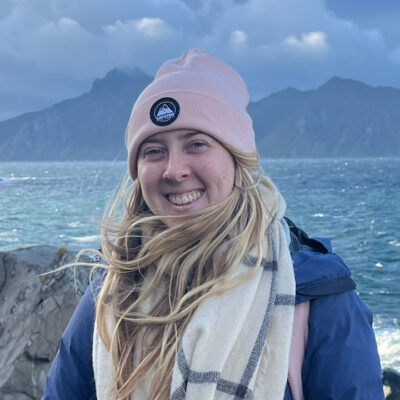Two Hudson Institute researchers receive prestigious veski Fellowship Awards
By Hudson Institute communications
Two promising young Hudson Institute researchers, Dr Cristina Giogha and Aidan Kashyap received highly sought after Victoria Fellowships, funded by the State Government of Victoria and delivered by veski.

The Fellowships will assist Dr Giogha and Aidan to undertake international study missions in their chosen fields of research. Dr Giogha will use this opportunity to further her research into how bacteria cause gastrointestinal disease and Aidan, a medical PhD student, is focusing on translating research on delaying umbilical cord clamping at birth for babies with underdeveloped lungs, into clinical practice.
The Victorian Government award six fellowships in life sciences each year, in recognition of the vital role of innovation to Victoria’s economic future and the need for skilled Victorians in the sciences. The fellowships allow promising young scientists to undertake a short-term overseas study mission to assist in developing a commercial idea, undertake specialist training or career development.
The Victoria Fellowships were established by the Victorian Government to provide our leading scientists and innovators with the support they need to develop life changing treatments here in Victoria.
Dr Cristina Giogha | gene-editing of intestinal organoids for use in Shigella research
Dr Cristina Giogha will be trained in the use of gene-editing to study the highly infectious bacterium, Shigella that causes gastroenteritis and dysentery that can lead to life-threatening complications including septicaemia. One hundred twenty million people, particularly in third world countries, are affected by Shigella each year.
There are currently limited infection model systems to study Shigella intestinal infections, which is preventing research into understanding how the bacteria causes disease. However, technological advancements have made it possible to use three-dimensional miniature organs or ‘organoids’ as model systems to study human diseases.
Dr Giogha will visit Assistant Professor Lukas Dow at Weill Cornell Medical College, New York to learn how to perform gene-editing on complex intestinal organoids. Assistant Professor Dow is the first in the world to develop these new and more efficient gene-editing tools.
“I’m excited to use these cutting-edge gene-editing techniques to help me to understand how bacteria manipulate human cells to cause disease. This new knowledge will also open up new opportunities to collaborate with researchers beyond my field, because these techniques can be used to advance many different types of research,” Dr Giogha said.
Aidan Kashyap | Translating delayed cord clamping research into clinical practice
PhD Student, Aidan Kashyap will visit renowned neonatal clinician-scientist, Professor Arjan te Pas in Leiden, the Netherlands, to learn about his revolutionary resuscitation table device, the Concord Birth Flow, that helps support babies who struggle to breathe when they’re born.
Currently, infants who are unable to establish stable breathing on their own are transferred to a resuscitation table with specialised equipment, moving the baby away from the mother and requiring the umbilical cord to be clamped immediately. However, Aidan’s research has focused on these babies who may benefit most from delayed cord clamping. The advantage of the Concord Birth Flow is that it can be placed right next to the delivery bed, allowing the baby to stay with its mother and umbilical cord clamping to be delayed until breathing can be established.
Aidan’s aim is to learn how the Concord Birth Flow could be used in the delivery rooms at Monash Health and other Victorian hospitals.
“Concord makes it logistically possible to delay cord clamping for the most vulnerable infants, but it could only be introduced into delivery rooms after a cultural shift towards embedding translational research in clinical care. By working closely with clinicians and scientists using this device, I will bring a specialised understanding of this practice-changing device back to Australia, which has never been used anywhere in the world outside of the Netherlands.”
“It’s an honour to be recognised by the Victorian Government. The support of the veski Victoria Fellowship provides a unique opportunity early in my career as a clinician-scientist to learn from a world leader in neonatal research and see the outcomes of my own research translated into a clinical setting, which is very exciting,” Aidan said.
The Victorian State Government engaged veski in 2013 to administer the Victoria Prize for Science and Innovation and Victoria Fellowships to provide Victoria’s leading scientists and innovators with the support they need to develop life changing treatments.
Contact us
Hudson Institute communications
t: + 61 3 8572 2697
e: communications@hudson.org.au
About Hudson Institute
Hudson Institute’ s research programs deliver in three areas of medical need – inflammation, cancer, women’s and newborn health. More
Hudson News
Get the inside view on discoveries and patient stories
“Thank you Hudson Institute researchers. Your work brings such hope to all women with ovarian cancer knowing that potentially women in the future won't have to go through what we have!”








